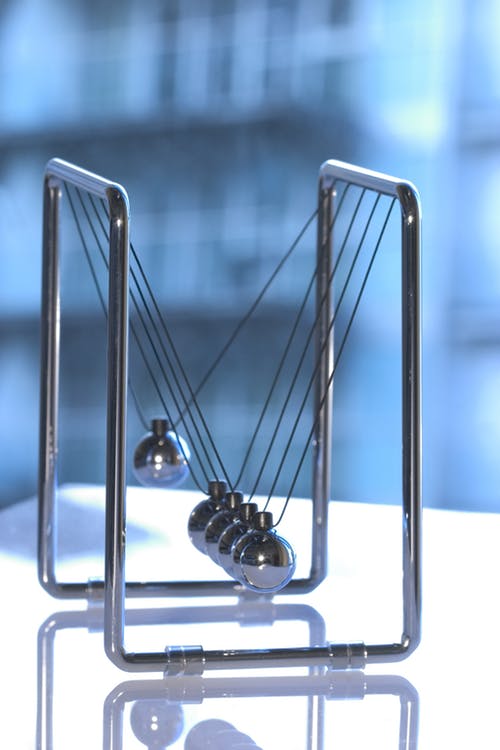Work-Life Balance
A couple of Sundays ago there was an article in the NYTimes about millennials and work. In it, the author posed the question- are millennials lazy or do they have the work-life balance correct? Are the rest of us in society so out of whack with our propensity to always be working that we think anyone who sets boundaries is lazy?
Lately I have recognized that I have a hard time relaxing. I guess for so long I had been juggling many different expectations, deadlines and projects and that to stop and not be constantly moving, planning, or thinking has been tough. Part of it is self-identity and self-worth. Part of it is upbringing. (Not blaming the Puritan work ethic too much.) What am I if not hardworking and accomplishing “something”?
As I was thinking about all of this I heard on the radio a country song, “Drink in My Hand.” Part of the lyrics: “To fill it up, or throw it down; I got a forty hour week worth of trouble to drown. No need to complicate it, I'm a simple man. All you got to do is put a drink in my hand“. In some ways it seems so sad that in order to get through each week, one needs to plan on drinking on the weekends. In essence, just about kill oneself over work for five days in order to have two days of freedom.
Wouldn’t it be better to have seven days of balance?
But how does one do that? Is that realistic in today’s society? The NYTimes article says that for some millennials, negotiating balance for the work load is not something that needs to be done. It is expected. Not from a sense of entitlement (although I suspect there are some workers that do feel entitled to days off, flex-time and more casual working), but because they have seen their parents in life-sucking jobs and the financial fall out of the Great Recession, debts, materialism, and have decided that there is more to one’s life than achieving financial success and possessions.
In the Bible, the Hebrew wiseman reminds us how to view our life: “For everything there is a season and a time for every matter under heaven… there is nothing better for them than to be joyful and to do good as long as they live; also that everyone should eat and drink and take pleasure in all his toil- this is God’s gift to man. “ (Ecclesiastes 3: 1, 12-13.) The ancient words remind us to balance that work (toil) and life (eat/drink). We can balance our work and life through the practice of gratitude (joy) and service (to do good). It is not all about the money (though money is necessary for living in this world) but how we think about each day and how we spend the time in those days. It is about a rhythm of life: keeping the pendulum balls moving and interacting with one another. Not in a harsh, clanging, one ball swinging higher and harder than the others but in a gradual, one touching and moving the next. Like Newton’s cradle (pictured above), the balls move equally and exhibit the same amount of movement energy.
Online there is an interesting TED talk that “tees up” the premise of striving for a better work-life balance. While the talk doesn’t really give a specific method for achieving and maintaining balance, he does spell out some fundamental issues:
Click here to listen to a TED talk by Nigel Marsh on Work-Life Balance.
I don’t know about you, but I don’t want to “wait until I retire, or until the kids move out, or until…. (fill in the blank) for starting to do what I feel led to do and which would help me achieve balance in my life. That is why about five years ago, I embarked on writing full-time. I realized what was the point in putting off that which I felt was a calling, just because I needed to find the “right” time. When is the “right time”?
Granted, I realize how blessed and fortunate I am to be in a position to do what I love. Especially since what I enjoy doing is not providing a necessary income to put food on the table. Many, many people are working in jobs that they do not like and possibly hate but find that their current job is the only work that is a) available b) capable of doing and c) necessary for survival.
Yet, I think part of the balance is to take each day as it comes and to enjoy the moments of each day. Some days I am quite aware of the moments and others, life is a blur. And so I must be intentional with balance. I don’t want to put off until tomorrow what I could do today but I don’t want today to be so rushed and filled that I am too exhausted to enjoy tomorrow. I think that gratitude and service does help keep our balance in check. Kind of like a spotter to ensure that we do not fall off the balance beam.
Gratitude and service are the guard rails. Gratitude helps us reflect on what we have: we can prioritize our values (e.g. family, health, material possessions). Service helps us distribute our work: we “do what is right and good” which can give us a satisfaction that work might not.
As is everything in life- it is about moderation. Not having it all at once. Quality versus quantity. Ensuring that one’s priorities are met each day. Setting boundaries. Being healthy in mind, body and spirit. Taking time to enjoy the moments.
What about you? How are you with balance? Work/Life? Family/Friends? Are you waiting for a specific time in your life to do what you feel called to do or want to do? Why is that? Is there some way you can moderately manage your day to day?
In the TED talk by Mr. Marsh, he reminds us that we have to take a longer view of our priorities. Not every day will be the “perfect” day. But, with intention, choices and care, I believe we can have “perfect” moments and daily joy. For me, that would be the right balance.

























